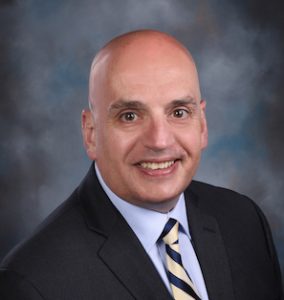ACEP issued the following emergency medicine health care reform principles that it considers indispensable to any replacement legislation. The principles are aimed at maximizing access to medical care while improving its quality and lowering its costs.
Explore This Issue
ACEP Now: Vol 36 – No 05 – May 2017- Maintain emergency services as a covered benefit for any insurance plan.
- Ensure the federal prudent layperson standard extends to Medicaid fee-for-service and that compliance measures are in place for all other health plans. The prudent layperson standard requires health insurance companies to cover claims based on a patient’s symptoms, not the final diagnosis. It means, for example, if a patient has chest pain but the diagnosis is ultimately a less urgent medical condition, such as a panic attack, the health insurance company cannot retrospectively deny coverage.
- Require health insurance companies to be transparent with the data used to determine in- and out-of-network reimbursement rates for their patients’ medical care. Ensure appropriate reimbursement rates for emergency services.
Eliminate the need for prior authorization for emergency services and guarantee parity in coverage and patient co-payments for in- and out-of-network emergency care services. - Retain protections for preexisting conditions, no lifetime limits, and allowing children to remain on their parents’ insurance plan until age 26.
- Enact meaningful medical liability reforms, including protections for physicians who provide federally mandated EMTALA-related services, who care for patients in a federally declared disaster area, and who follow clinical guidelines established by national medical specialty societies.
- Ensure any continuation or expansion of health savings accounts, health reimbursement accounts, association health plans, and individual health pools provides meaningful health insurance benefits and coverage for individuals and families, including access to emergency care services.
- Repeal the Independent Payment Advisory Board and the excise tax on high-cost employer health benefit plans. Delay repeal of the Center for Medicare & Medicaid Innovation until at least 2020 or amend it to eliminate mandatory provider participation in Medicare models. This will allow an adequate transition period for the Transforming Clinical Practice Initiative grants aimed at lowering costs, improving health outcomes, and delivering more effective care.
- Acknowledge the role of freestanding emergency centers and other health care delivery models as crucial to encouraging coverage innovation.
- Protect the most vulnerable populations in this country by making sure Medicare, Medicaid, and the Children’s Health Insurance Program (CHIP) remain available and solvent for current and future generations.
Although the AHCA was eventually pulled from the floor of the U.S. House before a vote was taken, there is no doubt that there will be renewed attempts to reform the health care delivery and financing system in the near future. The principles ACEP have adopted will continue to serve as the guidepost for whether ACEP will support future proposed legislation.
Be There Next Year
Given the continued pressures on the health care system to deliver high-quality, accessible, and affordable care to this nation, there will always be a need for emergency physicians and emergency care. However, it is exactly those same pressures that threaten to reduce the funding and support for emergency medicine as health care expenditures rise and the population grows and ages. LAC is a great opportunity for you to become more educated about the issues facing health care and our specialty and to have your voice heard directly by members of Congress.
Pages: 1 2 3 | Single Page



No Responses to “ACEP LAC Meeting Lets Members Voice Concerns about Health Care Reform on Capitol Hill”